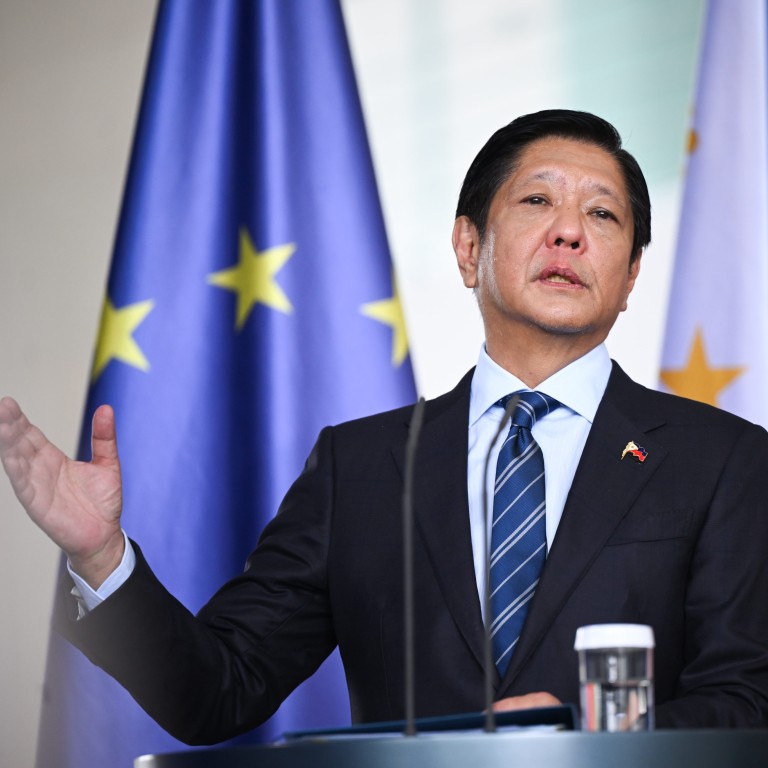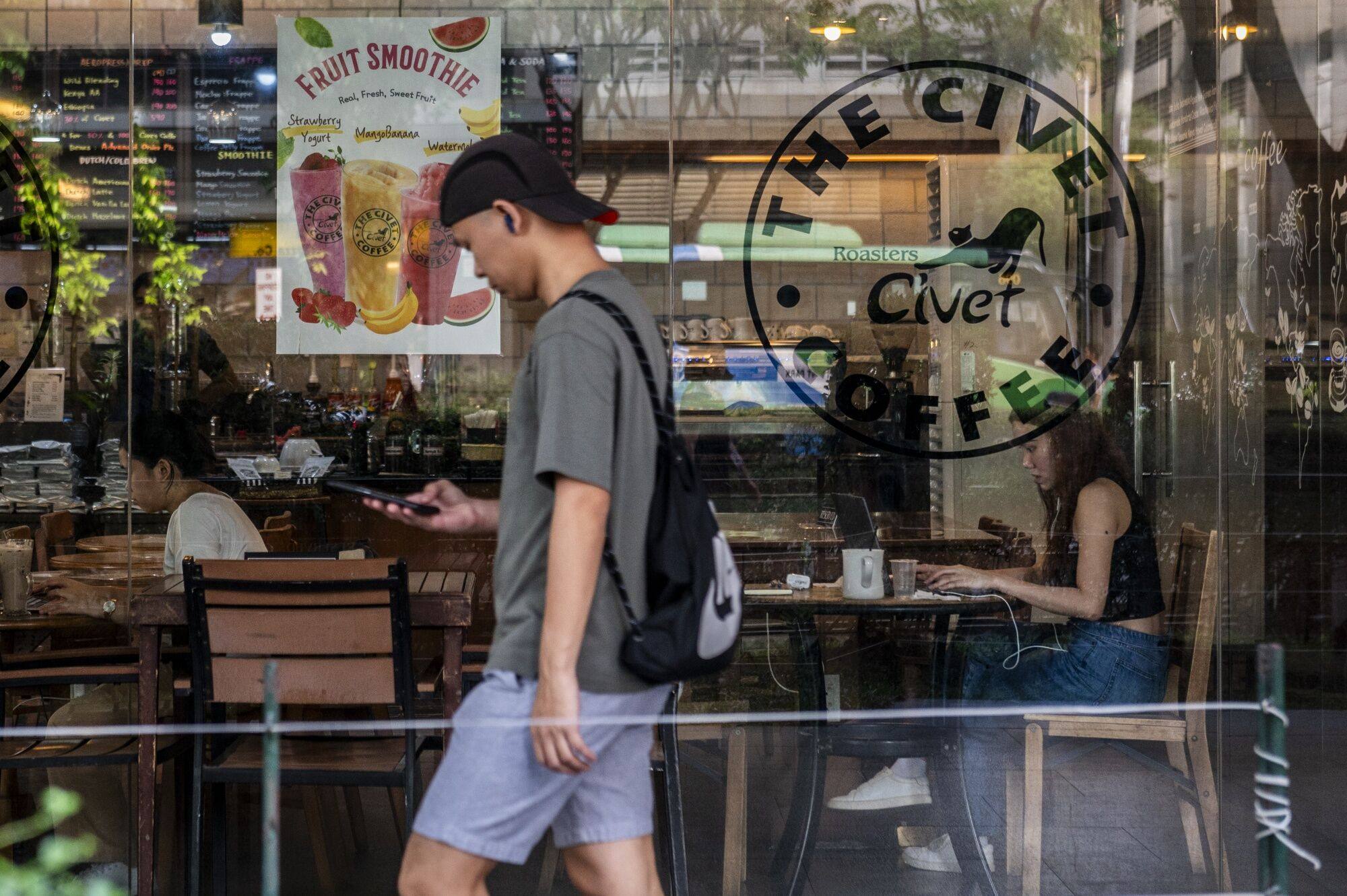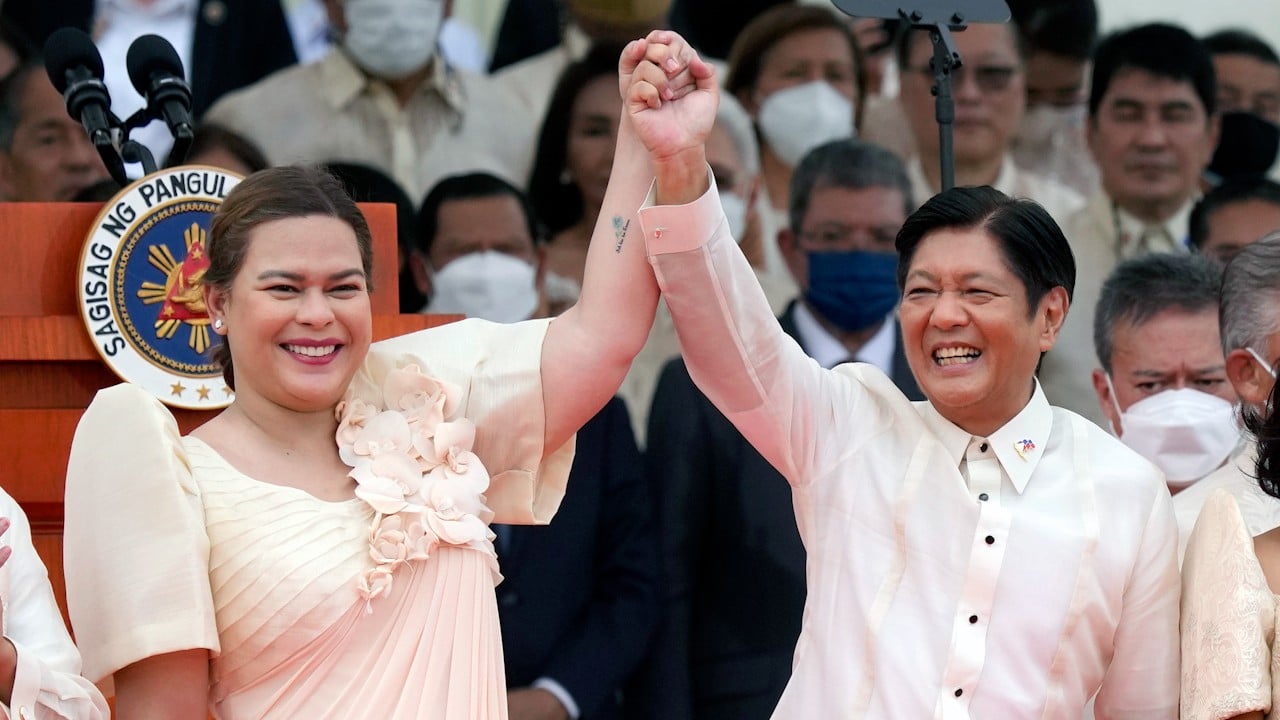
Will Philippines’ Marcos Jnr form social media regulatory board for ‘anti-government propaganda’ clampdown?
- A civil society group is urging Marcos Jnr to start a social media regulatory board but analysts fear the move could be targeted at silencing critics
- Some analysts question how such a board could ‘police and punish’ foreign social media platforms that the Philippines ‘has no jurisdiction over’
The Philippines’ Society of Social Media Broadcasters has requested the president to establish a “national social media regulatory board” through an executive order. The group also proposed that the board include representatives from the National Security Council, the Department of National Defence, and the Philippine National Police.
Such misinformation poses a “clear and present danger” to Filipinos, said Dr. Michael Raymond Aragon, head of the Society of Social Media Broadcasters.

Currently, the Movie and Television Review and Classification Board has the authority to suspend films and TV shows that incite “subversion, insurrection, rebellion, or sedition” and undermine public trust in the government. But this board does not extend to social media.
Dominic Ligot, a security specialist and executive director of Data Ethics PH, expressed doubt that such a regulatory board could crack down on social media posts because “no [Philippine] government agency has jurisdiction” over foreign social media platforms.
“Even if you created a social media regulatory board, to what extent can they police and punish?” Ligot said.
“They can only request certain content to be taken down.”
Even if you created a social media regulatory board, to what extent can they police and punish?
This law penalises the publication of false news that endangers public order or harms the state’s interests, with a maximum jail term of six months.
Ligot said Section 154 has been used to protect the state from dissent, pointing to its use under Duterte’s administration to detain journalists. Although those journalists were eventually released, the threat of Section 154 looms over other government critics.
Earlier this year, the national police’s director general Benjamin Acorda Jnr pledged to crack down on social media creators spreading false information, with police colonel Jean Fajardo highlighting Article 154 as a tool against such “destabilisers”.
On May 7, former senator Antonio Trillanes IV warned of a new destabilisation plot involving two senior police officials working with retired officers and Duterte supporters. However, the police said there was no evidence for the claim.
Trillanes said plotters planned to remove Marcos Jnr by June 30 and install Vice-President Sara Duterte as president, to foil any attempt to arrest her or her father, former president Rodrigo Duterte, by the International Criminal Court.


